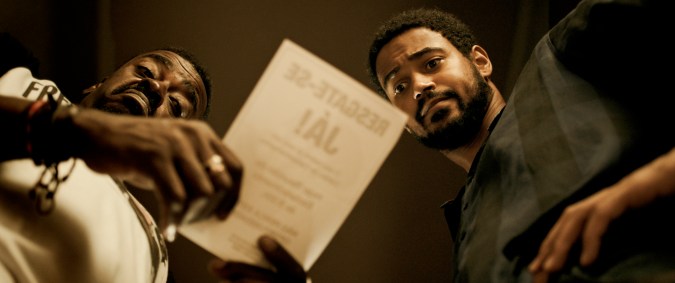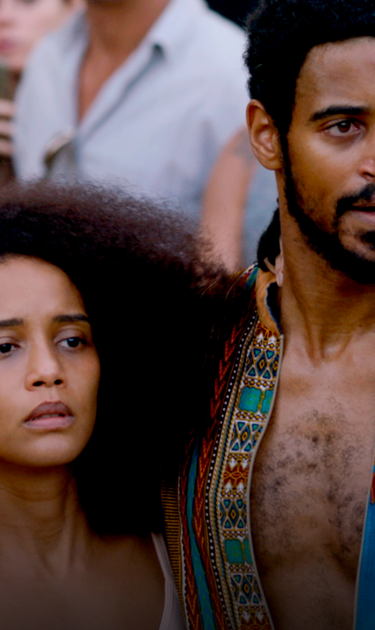It’s been 20 years since actor Alfred “Alfie” Enoch first stepped into the hallways of the Hogwarts School of Witchcraft and Wizardry as Dean Thomas, one of the lesser-known students in the Harry Potter film franchise.
After 10 years and seven magical films (he wasn’t in Harry Potter and the Deathly Hallows—Part 1), the English-Brazilian actor, and the only Latino character in the fantasy series, found success in a post-Potter career on TV shows like Troy: Fall of a City and How to Get Away with Murder.
In his most recent film, Executive Order, Enoch plays a lawyer living in a future, dystopian version of Brazil; there, he fights to get reparations for his fellow country men and women who are the descendants of slaves. The authoritarian government responds by enforcing martial law and ordering all its citizens of African descent to relocate to Africa. This inspires him to start an underground resistance against his country before the executive order is carried out.

When Enoch read the script for Executive Order, he was intrigued by the concept and wanted to explore the idea of what would happen if something as inconceivable as forced migration took place. He hoped a narrative like this would put a spotlight on the “engrained, institutionalized [and] systemic racism” that is permeating society today.
“As time went on and certain things happened politically around the world in Brazil and the states and the U.K., I thought, ‘OK, some of these things do happen and they blindside you,’” Enoch tells Remezcla during a recent interview. “What’s interesting about the film is that it doesn’t look at the judicial processes. It looks at what happens to people as a result…and what happens when we take that to an extreme.”
If I can make work that reflects my concerns as a person, then I’m even more fortunate.
Enoch said it was important for him to be part of a project that felt so “politically significant.” It’s something that he is thinking about more and more as his career moves forward—to work on films, TV shows and stage productions that “have something important to say” and aren’t afraid to say it.
“I value my political engagement and to be able to make a movie that reflects that in my work is exciting,” Enoch said. “I believe in democracy and that’s based on engagement. I think we create a better society by people expressing themselves. If I can make work that reflects my concerns as a person, then I’m even more fortunate.”

Executive Order is a film set in Brazil, but Enoch believes it will resonate with viewers from other countries, too. As unbelievable as the idea might sound to a lot of people, he considers it a universal story.
“I think viewers will be able to find something in the film that connects to their experience,” he said. “I don’t think that is much of a stretch either. Much of the world is built on these power structures that are based on upholding the primacy of Western European culture. That has affected so much of the world.”
I got to deepen my relationship with my mother country.
As Enoch maneuvers through the next phase of his career as an actor, he is also connecting to the pieces of his cultural background that make him who he is. His mother is from Brazil, but Enoch hasn’t lived there since he was six years old.Still, he considers it home.
“[My mother] is the first exposure to me of part of my identity, which was not always immediately accessible growing up because I was born and raised in London,” he said. “One of the wonderful things about the film is that I got to deepen my relationship with my mother country. It was wonderful for [my mother] to see me working in Brazil and engaging with a part of myself that is a reflection of her.”
Executive Order premiered at the 2021 SXSW Film Festival.




